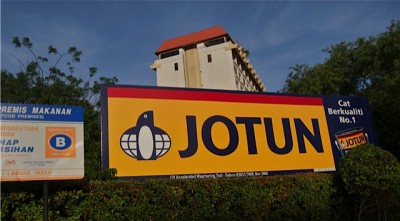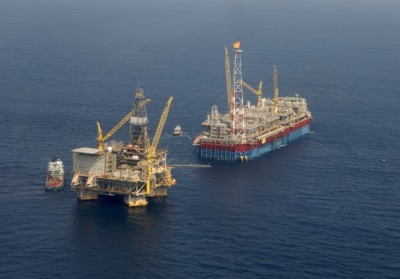Norway is generally viewed as a non-corrupt country, but over the past few years, nearly every large Norwegian company has had to grapple with the problem. The biggest cases have involved Yara International, Telenor and Statoil, with the latter currently embroiled in more questions about its dealings in Angola. Now corruption seems to be spreading in Norway as well, involving local bosses at internationally successful paint producer Jotun and even civil servants for the city of Drammen.

The trial of a former Jotun executive at the company’s headquarters in Sandefjord began in January, on charges that he misused his position and wrongfully gained on deals Jotun had with four local companies. A total of six men (the former Jotun boss plus five others from Jotun suppliers who stand accused of effectively paying bribes to him) are on trial in the so-called “Jotun case,” due to run through February and into March.
Newspaper Aftenposten and other media have reported that the 58-year-old former maintenance chief at Jotun allegedly accepted goods and services valued at NOK 2.1 million from companies that had secured contracts from Jotun. The benefits to him included outdoor decorative stone-laying at his personal residence, gardening services and electricity installations at two homes in Sandefjord and a holiday cabin in Tinn.
Another firm that won Jotun contracts provided the food for the Jotun maintenance chief’s own wedding and 50th birthday party, while he also accepted a drill for his brother, snow removal equipment and a new lawn mower and gas grill, and even iPads for his son, daughter and wife, all paid for by the companies doing business with Jotun.
‘More common than we think’
“Receipt of goods and services in exchange for work contracts is more common than we think,” Professor Emeritus Heidi Høivik of the Norwegian Business School BI told newspaper Dagsavisen. She said such corruption often begins on a small scale, when a boss thinks it’s okay to accept favours from officials of companies that have received work contracts from his or her own employer. Høivik specializes in ethics in management and has been a board member of Transparency International Norge.
The public sector in Norway is not immune to similar corruption. Last month a woman working for Drammen township was arrested and charged with corruption after allegedly accepting money from various people applying for building permits. Drammen officials say the amounts she allegedly received varied from NOK 5,000 to NOK 120,000, in return for giving permit applicants various advantages.
Professor Tina Søreide at business school Norges Handelshøyskole told Dagsavisen that it’s time more local governments wake up to the prospects for corruption carried out by public sector employees.“Corruption or suspicion of corruption harms a community,” Søreide said. “People lose confidence that applications will be handled as they should be.” She thinks all building applications and similar transactions should be handled by two public officials, so more sets of eyes are involved in them.
More questions over Statoil’s Angola operations
On a commercial basis, the huge ongoing corruption case involving Telenor’s mobile phone investments in Kazakhstan via its corruption-charged VimpelCom subsidiary has once again raised questions about Norwegian companies doing business in countries known for being corrupt. Oil Minister Tord Lien, for example, was recently challenged by Parliament to account for state-controlled Statoil’s operations in Angola, which has emerged as Statoil’s most important country outside of Norway because its operations there produce around 200,000 barrels of oil a day. Angola is also known, however, for being one of the most corrupt countries in the world, and its vast oil wealth has not been widely distributed among its population at large.

Lien’s response to Parliament included confirmation from Statoil that it had indeed committed itself to pay large sums in 2011 (around NOK 12 billion) to Angola’s state-owned oil company Sonangol. The money was paid to secure five oil licenses off Angola’s coast. NOK 4.6 billion (USD 530 million at current exchange rates) of it was deemed a “signature bonus,” a form of up-front tax in Angola.
While it’s common to bid for and pay oil field licensing fees, Statoil also agreed to pay around NOK 715 million (more than USD 100 million at the time) for “social contributions” to Angola. The payment was part of the bidding criteria to win license to operate the Angolan oil fields, and NOK 420 million of it was earmarked to fund construction of what was supposed to be a research and technology center for Angolan state oil company Sonangol. More than four years later, the research center still exists only on paper, and questions have been flying in Norway over what has happened to the NOK 420 million.
Newspaper Dagens Næringsliv (DN) reported this week that Statoil, badly burned in a corruption case in Iran more than a decade ago, recently halted its payments to the account earmarked for the research center project that doesn’t exist. Statoil instead sent NOK 94 million to the Sonangol account for the signature bonus, based on concerns over the lack of progress with the research center.
“Sonangol is legally obligated to forward payments to the signature bonus account to the state treasury,” Statoil’s information director Bård Glad Pedersen told DN. Pedersen, a former top politician and state secretary for the Conservative Party in the foreign ministry, claimed Statoil “follows up all payments,” and since the payments were part of its licensing agreement in Angola, he claimed they don’t violate “relevant anti-corruption laws.” He also claims Sonangol is contractually obligated to go through with the research center project.
Oil Minister Lien also reported to Parliament that Statoil doesn’t believe its payments to Sonangol amount to bribes, stressing that Statoil has asked the Angolan company for a status report on the research center project. Statoil classifies the payments as standard contract obligations, but DN reported last weekend that it failed to pose any control questions as it sent a the total of NOK 420 million to Sonangol. The parliament’s disciplinary committee was due to take up Lien’s response at a meeting later this week.
Corruption ‘common’
As the cloud of corruption settles over more companies in Norway, newspaper Aftenposten reported, meanwhile, that the defendant in the Jotun case admitted to doing some “dumb things” and making some bad choices. He denied the corruption charges against him, however, even though they also involved manipulated invoices to Jotun that involved work at his private residences.
It was Jotun itself that noticed suspicious invoices and reported their concerns to police, while the chief of a local catering company that served the Jotun defendants’ wedding and birthday guests blew the whistle and found himself charged as well. He and the other Jotun suppliers charged in the case are accused of paying bribes to secure their work for Jotun, but he testified he felt pressured into paying for the Jotun executive’s party food.
Perhaps the most chilling response from the Norwegian defendant came when he testified that it was “common” for Jotun employees in Sandefjord to take advantage of rebates offered to Jotun itself, just as many experts warn that corruption also is common in countries like Angola. “There was a culture within Jotun that employees also got rebates (from company suppliers),” he claimed. That’s why it was “common,” he suggested, for the company’s gardening firms, electricians or painters, for example, to take on jobs at Jotun employees’ homes as well.
newsinenglish.no/Nina Berglund

